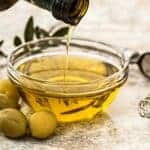
If you want to use organic baby soap for your child, you’re in good company. A natural baby wash or baby soap bar must be mild and gentle for their skin. And if you want to know all the basics of organic baby soap, you’re at the right place.
Giving baths to newborns for the very first time is a stressful activity, but if you are using the right washing elements or soap, it helps. Baby’s skin can’t bear every type of soap, especially the ones containing harsh elements. That’s what made many soap manufacturing companies focus on this matter, and now, we have numerous safer organic baby soaps in the market.
Various renowned companies such as Honest co, Baby Mantra, Dr. Bronner, California Baby, Babo Botanicals, and Earth Mama Organics produce quality baby care products. You can choose any organic soap, shampoo, baby shampoo, body wash, and baby wash of these companies for a better wash.
But here comes your role to be aware of what to look for in your baby soap bar.
Must remember that your baby has sensitive skin which needs extra care. A gentle bar soap, baby wash, and baby shampoo should always be your choice for your baby. If you are interested in creating baby wash or organic baby soap at home, give it a try. It is fairly cheap and safe to make a natural baby wash or baby soap bar at home. In this blog, we’ll discuss all the aspects of organic baby soap and the recipe for a homemade baby soap.
What is organic soap, and how did it originate?
Soaps in ancient times were meant to be a source of cleaning clothes. The soap was discovered accidentally. Approximately 5000 years ago, the soap was discovered when the researchers observed that rainwater mixing with wood ash makes lye. And, when that lye spilled over laundry, it removed the stains, which was a remarkable invention.
Lye is no doubt a corrosive and caustic compound that is not only harmful to the skin but can make a person blind. Over time, people learned to make the salt of lye to reduce their caustic properties. So, vegetable oil and lye were mixed to make soap which is salt in chemical terms and is less harsh to use.
This newly formed salt had similar properties to the lye, which were not too intense as pure lye was. But still, the soap was much corrosive; that’s why people were only using it for removing stains from dirty clothes, not for applying to human skin.
In ancient times, people made soap with only two ingredients: organic vegetable oil and lye. Both the certified organic ingredients were mixed well to make a smooth paste. It was the initial natural soap for washing fabrics.
Later on, with advancements in all fields, the soap industry experimented and concluded that natural ingredients could work well. They tried various natural oils and ingredients to create a better soap version.
Soaps made with different natural ingredients come with different properties that all adults can use without any precaution. But when it comes to babies, using any soap on their sensitive skin is not good. Must check the ingredients on the soap pack to ensure that no harsh element is a part of your new baby soap.
Ingredients that are essential for an organic baby soap
When shopping for natural baby wash or soap, most people get confused about selecting one. If you know what things your organic baby soap should contain and whatnot, you can easily choose any soap.
If you know what to avoid compared to what to search for in your baby soap, it will make the process a lot easier. The first and foremost thing is that organic baby soap should not be harsh because babies have sensitive skin.
Always buy baby soap that doesn’t contain synthetic fragrance, formaldehyde, alcohol, and parabens. Sulfates can lead to skin irritation and take away essential oils from the skin’s top layer, resulting in eczema. These elements are not safe for the sensitive skin of your baby.
If we talk about the safe options, aloe, coconut oil, ceramides, oat, and shea butter make the baby soap soothing.
Tear-free baby soap wash
If you see “tear-free” on any organic baby soap, it means that the product lacks ingredients that can irritate a baby’s eyes. Such baby soap can clean the skin effectively without posing any harsh effects on the baby’s delicate skin. So, always buy tear-free baby shampoo, body wash, and organic baby soap to keep your baby’s eyes.

Which organic baby soap to buy?
Safety is the first thing to keep in mind when buying any baby soap then comes your priorities. If your baby enjoys soothing fragrances such as chamomile lavender, buy a natural baby soap with a milder fragrance. But it is better not to use any bar soap with fragrance because it can lead to skin irritation or dryness.
If your baby is allergic to fragrances, you can go for other organic soap that suits best to your kid’s sensitive skin. May your baby requires soap that can produce foamy and thick lather to clean all the mess accumulated on his delicate skin. The perfect baby soap means it should include essential elements such as almond oil, oils with vitamin e, and olive oil. Never go for a baby bar soap that burns eyes or causes itchy skin and dry scalp.
Organic baby soap recipe
Here in this section, we tell you the recipe for an organic baby soap that is perfect for your baby’s skin. Because it contains various oils, and each oil has different properties. These oils combine to form a soap, an outclass baby bar soap produces. Let’s have a look at its tools and ingredients first.
Tools and ingredients required for this recipe
Tools required for soap making are not that expensive and are even conveniently available everywhere. If you already have all equipment at home, that’s too great, but if not, you can purchase them from any nearby store.
- A digital scale
- A soap mold
- A stick blender
Now, we’ll mention all the ingredients of this simple recipe and their quantity. Make sure the ingredients of your recipe should not exceed the measurement. Otherwise, the results would not be as you are expecting.
- Beeswax (1 ounce)
- Water (8-11 ounces)
- Coconut oil (8 ounces)
- Olive oil (14 ounces)
- Sweet almond oil (3 ounces)
- Shea butter (4 ounces)
- Lye (4.10 ounces)
- Lavender essential oil or other fragrance ( 2 tablespoons, but it’s optional)
Oils that are good for organic baby soap
Different oils have different properties, so before making soap at home, be sure what you expect from it. Some oils make nourishing soaps, while others produce soaps with extra cleansing properties. Some oils make the soaps harder, while others are known for creating a softer lather and curing dry skin. As you make soap for your baby, the bar soap must be gentle and moisturizing.
If you want your baby soap to be a great cleanser, add coconut oil, almond oil, or olive oil to your organic baby soap. These oils make the soap gentle for your baby’s sensitive skin. The shea butter and beeswax make the soap harder but nourishing simultaneously. You and your little one will enjoy the relaxing fragrance of soap made with lavender essential oil.
Coconut and Olive Oil
Soap made with coconut oil or olive oil have antibacterial properties. So using such soaps can kill skin infections and skin imperfections such as baby acne. Olive oil and coconut oil organic baby soaps are ideal for sensitive skin. Use olive oil soap for your baby’s delicate skin because it moisturizes the skin and protects it from getting dry over time.
Beeswax and Shea Butter
Beeswax is a natural ingredient that gives a soothing effect to the skin. It doesn’t let the bacteria grow and provides extra nourishment to the babies’ skin. Shea butter includes anti-inflammatory and anti-fungal elements and is a remarkable remedy for various skin diseases. If a baby has rough or dry skin, the shea butter with its Vitamin e and A and fatty acids can heal it easily.
Sweet Almond Oil
Almond oil is available in two varieties: bitter and sweet. Sweet almond oil is well-known for its superb properties and is used more in skin care products than its counterpart. It is perfectly safe to use on your baby’s skin. Bitter almond oil is more prone to skin damage; that’s why it is better to avoid it.
Vitamin E is an essential element for keeping the skin soft and glowing. If your organic baby soap has sweet almond oil as one of its ingredients, it is a magnificent gift for your baby from your side. Because it consists of rich Vitamin E that is required for making the baby’s skin healthy. Along with nourishing the skin, it also prevents several skin problems, including soreness, eczema, and dryness.

Lavender Essential Oil
Though many users avoid fragrances in their organic baby soap, the lavender essential oil has exceptional value, among others. If your baby is so fussy and sleeps less, give him a bath with soap having lavender oil before going to bed and see the difference. The soothing effect of your natural baby wash or baby soap bar will encourage an amazing sleep. Moreover, it also reduces itchiness dryness and reduces other skin problems efficiently.
Organic Baby Soap Making Process
Making organic baby soap is not a daunting task. In this recipe of best baby soap, we are using all those ingredients that will make your baby’s skin super fresh and healthy. Make the bubble bath enjoyable for your kids by creating a great soap. The children who are reluctant to take a bath every day will love that bath time once they become habitual to your new creation. Let’s explain the organic baby soap recipe step by step.
1- Make Lye Solution
First, measure the water and lye. Then mix lye with water and stir until it fully dissolves. The mixture becomes super hot when mixed, so keep it aside. When the solution becomes cool, then further proceed.
2- Melt Soil Oils
Measure the oils now. First, melt the beeswax, and as it is slow in melting, you can use a microwave for this purpose. Microwave is the best option for all the soil oils such as shea butter, coconut oil, and beeswax. Place them in the oven for one or two minutes for initial melting.
3- Mix Oils and Lye Solution
Measure all the liquid oils separately and pour them one by one in a single bowl for mixing.
Add the pre-softened oils to the oil mixture and keep the bowl on the stove. In a couple of minutes, the soil oils will melt and be about 140 degrees. Remove the bowl from the heat and let the solution cool at room temperature. This may take hours, but combine lye water in it when the oils are cool.
4- Blend the Mixture
Stir the lye water and oils with the stick blender until that mixture reaches a trace. Blend the solution well until it becomes a perfect batter. If you pick up the blender and its trail remains at the surface of the batter, it means the mixture is ready. But if the trail sinks instantly, then blend the mixture for some more time.
5- Add Fragrance
Add fragrance of lavender essential oil if the batter is ready and mix well by hand. If you want to make fragrance-free soap, then move on to the next step.
6- Put Mixture in Mold
You should not leave the mixture in the bowl for much time after adding fragrance; pour it promptly into the mold. Wrap the mold into a towel or blanket after pouring the mixture to retain heat inside. Keep the mold in a safer place where no one touches it. That soap needs 24 hours to get hard. Take the bar soap out of the mold after one day and cut it into equal bars.
Remember, this recipe includes olive oil, which takes longer to get hard. The soap will be perfectly ready after two weeks. For better results, you have to wait for one month, then it will be excellently hard and will last for a long time.
Notes
Soap making is an exciting activity, but safety is too essential, so collect safety equipment before beginning the procedure. Put on your gloves and goggles because lye solution can be hazardous to work with. The place where you make soap must be safe, and your kids and pet should not be around.
Lye is a crucial element for making bar soap but be cautious. Slowly put lye in water and stir the solution with much care because any accidental spill-over can cause great damage.
Why Make Organic Baby Soap at Home
You might think that when high-quality baby wash and organic baby soap are available on the market, then why homemade soap? Yes, many top-notch brands produce outclass baby products but making baby soap bars and natural baby wash at home has several benefits.

1- Safe
If we are using any type of product on our skin, it is not that alarming, but you have to be extra conscious for kids. The sensitive skin of your baby needs proper care, and using the right products can help a lot. When you make an organic baby soap at home, you are well aware of what is going into the soap. So, you try to make the best baby soap for keeping the baby’s delicate skin protected.
2- Cheap
Making baby soap at home is so cheap. All the ingredients of organic baby soap don’t cost much but make you safe from shopping for the soap for a longer time. Your soaps will last for years if you can make the soap like a pro. People with a tight budget can save money by manufacturing organic baby soap at home. Buying a soap from the market is a waste of your money but also of the precious time that you have to spend shopping. It may not seem costly when you buy soap in a small amount. But when you estimate the total amount you are spending on purchasing soap every month, you’ll notice that huge difference.
3- Easy to Make
The interesting thing about making organic baby soap at home is that it is not a challenging task; rather, it’s enjoyable. Producing a natural baby wash or baby soap bar is not rocket science. The method is simple and easy to make. All you need is a few ingredients and equipment and spend some time making the soap; the rest is hardening which occurs naturally. So, it is a better remedy for keeping you relaxed that you are using a safer product for your beloved kid.
Conclusion
Although it is good to use natural products for your skin when you’re applying any product to your baby’s skin, be more specific. Use organic baby soap, shampoo, and other bubble bath products for your baby.
If you prefer homemade products, be relaxed; making organic baby soap or natural baby wash at home is a breeze. But if you’re too busy and can’t create a baby soap bar at home, no worries. Various top-notch brands are producing skin-friendly products for babies particularly. So, purchase any of your favorite brands of organic baby soap to give your child a soothing effect every time he takes a bath.


